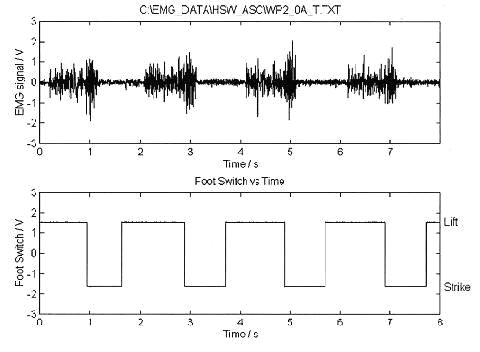Understanding MS at the physical level:
Problems with mobility, balance, hand and arm movement, vision etc. may seem easier to understand than the emotional impact of MS because we can measure movement problems in a number of ways. Many of you will have experienced the typical assessment that a doctor or physiotherapist might carry out. Our aim is to dig deeper into this aspect of MS and try to see inside the body to gain better insight into exactly how these problems arise.
We know that nerve damage in the brain and spinal cord causes movement problems. One of the most important current areas of local and international research is aimed at finding ways to repair this damage using strategies like stem cells and growth promoting agents. Such strategies are probably some years away from being introduced as routine practice and when they are we will need to know that the damaged nerves are in a suitable state to respond to treatment. We will also need to know how to treat people, who to treat, when, and where to treat. Our studies, using new measurement systems, will look directly at nerve and muscle actions in detail in order to see whether or not the nerves that bring about muscle actions are in a state that suggests that they can be repaired. This will help to decide whether strategies like stem cell treatments will be of direct value to individuals. In cases where this is likely then, in due course, suitable treatments can be devised.
When repair treatments do not seem to be possible artificial means of generating muscle movements can be attempted and this is where robots may help! If we can generate robotic movements that closely emulate normal human movements then the converse is also possible, that is, we can take this technology back to the human body to generate movements in limbs that have weak or uncontrolled movement. To explore this further we are joining forces with one of the most exciting developments in Bristol — the establishment of a new Robotics and Intelligent Autonomous Systems (i.e. clever machines) Group which is a collaboration between University of the West of England and the University of Bristol. This will bring considerable new and highly unique expertise to bear on the problems of MS. Coupled with this we will also work with the University of Surrey to test a new type of nanotechnology based electrode that sees deeper into body structures and provides much more information that we have been able to gain previously.
 In all then things are beginning to look very much better for MS in Bristol and wider a field. However we can only make progress if we have the funds to do this. The charity MS Research Training and Education has committed considerable help for the immediate activities of the MS Unit and to help develop a new clinical MS research centre at Frenchay Hospital to enable more joined up research activities across Bristol.
In all then things are beginning to look very much better for MS in Bristol and wider a field. However we can only make progress if we have the funds to do this. The charity MS Research Training and Education has committed considerable help for the immediate activities of the MS Unit and to help develop a new clinical MS research centre at Frenchay Hospital to enable more joined up research activities across Bristol.
Please help us and them in any way you can to raise the funds needed. You can contact the fundraising team.



